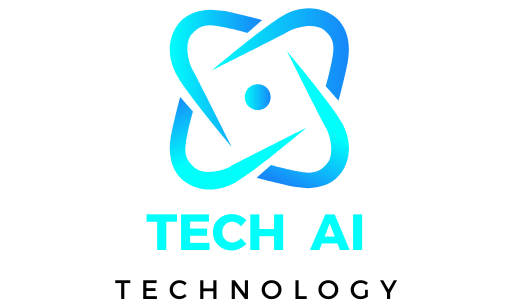Java and Artificial Intelligence are now partners that are working hand in hand to influence the development of future technologies! Better yet, try to combine the hardness of Java language with the futuristic opportunities of artificial intelligence.
Here comes this dynamic duo is not merely the hottest thing in the technology space, but is a patent game changer. If you want to know about the best Java AI or the Java AI code generators that are revolutionizing the market then you are at the right place.
This article will explain to you how Java in artificial intelligence is big and how you can leverage it to take your tech initiatives to the next level. Hold on tight as we discover how Java and artificial intelligence are revolutionizing the world and making technology smarter and easier to use than ever before.
How Artificial Intelligence and Java Are Revolutionizing the Tech World
The combination of AI and Java is what is changing the technology world by mixing up Java’s flexibility with the effectiveness of AI. Enhanced software development with this combination makes it more effective and intelligent at once.
Java’s power lends support to AI potential giving rise to sophisticated solutions and creative apps. This amalgamation is important for current technology projects as it provides advanced usability and smart functionalities.
The Power of Java in Artificial Intelligence
Java has a crucial position in the world of artificial intelligence, which can be attributed to its stability, easy portability, and extensive libraries. The combination of Java with AI allows developers to tap into Java’s performance and scalability in developing AI powered applications.
This duo promotes the advancement of complex algorithms and models that power intelligent systems. From Java AI code generators to sophisticated machine learning frameworks, numerous innovations in AI have their roots in Java.
The best artificial intelligence solutions in Java are present across different applications including predictive analytics and natural language processing thus demonstrating the versatility of the language for use in AI.
Exploring Java’s Contribution to AI Solutions
Java is well known in the field of artificial intelligence due to its dependability, portability, and vast libraries. When developers merge Java with AI they can take advantage of its speed and scalability to develop their AI based applications.
This combination helps create sophisticated algorithms and models that govern intelligent systems. Many other innovations in AI also originate from this programming language, such as Java AI Code Generators and complex machine learning architectures.
Many examples demonstrate that Java has many possibilities for use in AI applications, especially in various domains including Natural Language Processing or Predictive Analytics.
Maximizing AI Capabilities with Java
The relationship between artificial intelligence and Java presents fresh possibilities for projects. Developers can harness Java’s functionalities to create stronger and more efficient AI systems. One strategy to boost productivity and streamline development processes is through the use of Java AI code generators.
By amalgamating AI with Java, developers have the upper hand in designing complex solutions that meet current technological requirements. In this regard, Java is a critical contributor to driving innovation and achieving excellent results as AI evolves.
How Java Enhances Artificial Intelligence

The Java programming language has established itself as one of the strongest instruments for the realm of artificial intelligence (AI) because it has some advantages that encourage many people to choose this language for creating AI software. This paragraph discusses how Java improves on AI projects and what makes it unique concerning AI.
Java’s Role in AI Development
- Benefits of Using Java for AI Projects
Through its flexibility and durability, Java is an essential tool in the growth of AI. The independent operation of platforms is guaranteed by Java; thus, it enables the development of AI solutions that can function across various platforms.
This is possible through Java’s highly object oriented principles which allow easy programming about complex projects that are being developed in artificial intelligence. The language has comprehensive libraries as well as frameworks for building and deploying AI applications with the help of its standard resources.
- Java’s Performance and Scalability in AI Applications
In discussing large scale AI applications, Java’s performance is one of its biggest assets. It has a Just In Time (JIT) compiler that can optimize code execution, making it good for resource hungry tasks such as training machine learning models.
The scalability of Java guarantees that applications can deal with increasing amounts of data and user requests, which is significant in today’s AI solutions where continuous learning and adaptation are required.
Popular Java Libraries for AI
- Overview of Libraries like Deeplearning4j, Weka, and MOA
When it comes to advancement in Artificial Intelligence, few libraries can be compared with Java ones. For instance, Deeplearning4j is an outstanding library for deep learning that accommodates different models of neural networks while ensuring speed on both CPUs and GPUs.
Weka is another major player as far as many machine learning algorithm packages are concerned together with tools for preprocessing data. Stream data mining and real time analysis are among the focuses of MOA (Massive Online Analysis). This is what makes it useful for continuous processing of data applications.
- How These Libraries Facilitate AI Development in Java
These libraries greatly facilitate the development process of AI in Java. Deeplearning4j has preset models and implements customizing ones making it easier to do deep learning algorithms from inception as compared to programming them from zero.
Weka’s interface is user friendly and possesses a wide range of algorithms thus easy experimentation with diverse machine learning methods. MOA gives developers an ability to create applications that will be able to adapt toward streaming data in real time hence improving the efficiencies of such artificial intelligence systems.
Java AI Code Generators
- What is a Java AI Code Generator?
An automated Java code generator powered by artificial intelligence is a program that makes use of AI technologies to produce Java code automatically.Machine learning models are employed for predicting and generating pieces of code from user specifications or current software programs in such generators. The method enables faster development, fewer mistakes, and improved efficiency since it can deal with monotonous coding activities.
- Advantages of Using AI Code Generators with Java
The distinct benefits that AI code generators come with are reduced coding time and increased accuracy. They free developers from time consuming and repetitive tasks, enabling them to concentrate on the more intricate facets of AI development.This type of automation results in shorter iteration periods and increased dependability of codes, thus improving the overall performance of artificial intelligence projects. In addition, these tools provide a way for programmers involved in designing modern artificial intelligence systems to keep pace with new developments in programming standards and best practices.
- Examples and Use Cases of Code Generators in AI
Like Codex and TabNine, for instance, there are Java AI code generators. They come with development environments to help programmers by offering code completion suggestions and writing some general purpose codes.
In terms of AI projects, such generators can hasten algorithm implementation, ease test case generation as well as automate repetitive coding activities thus quickening the overall development process.
Implementing AI with Java: Case Studies and Examples
Being a reliable and multi purpose programming language, Java makes a substantial contribution to the domain of artificial intelligence (AI). This write up looks at how Java has been applied in AI powered applications, machine learning initiatives, and natural language processing (NLP) with actual examples and case studies revealing its success rates.
AI Powered Applications in Java
The language of choice for developing AI based applications is Java given its scalability, reliability, and extensive libraries. Successful AI applications written in Java demonstrate its ability to support complex algorithms and data management.
Examples of Successful AI Applications Built with Java:
- Systems of Recommendations: Java based recommendation systems are employed by firms such as Amazon and NetFlix to suggest items or information based on user activities. Such systems rely heavily on Java’s robust libraries and frameworks for processing large data sets.
- Systems for Fraud Detection: Institutions in finance use AI systems driven by Java for real time analysis of transaction patterns and user behavior to detect fraudulent activities. It is through its performance and scalability that Java suits these crucial tasks so well.
Case Studies Demonstrating Java’s Effectiveness in AI:
- Google’s TensorFlow Integration: Even though Tensorflow is more popular in Python, the framework provides the Java API for implementing AI models into the applications made in Java which proves Java’s versatility in AI technologies.
- IBM Watson Integration: IBM Watson, one of the popular AI services, offers Java SDKs in order to include Language Understanding and Machine Learning in Java code.
Java in Machine Learning Projects
In machine learning (ML), Java plays a key role in creating algorithms and models applicable to a range of areas. Due to its excellent performance attributes and broad ecosystem backing, it is practiced in ML assignments.
How Java is Used in Machine Learning Models and Algorithms:
- Data Processing: Cutting edge libraries for Java include Apache Spark and Weka which facilitate preprocessing and analysis of huge data sets which are vital for building machine learning models.
- Algorithm Development: Libraries like Deeplearning4j and MOA help Java to implement different algorithms for machine learning including decision trees, neural networks, or clustering methods.
Case Studies of Machine Learning Projects Using Java:
- Stock Market Prediction: Financial firms use Java to develop predictive models for stock market trends. The language’s performance ensures real time processing and analysis of market data.
- Health Diagnostics: Java based ML models are employed in healthcare for diagnostic purposes, such as predicting disease outbreaks or analyzing patient data to identify health risks.
Java for Natural Language Processing (NLP)
Java’s capabilities extend to natural language processing (NLP), a crucial area of AI focused on understanding and generating human language.
Java Libraries and Frameworks for NLP:
- Apache OpenNLP: This library contains tools for some of the most common tasks in NLP such as tokenization, part of speech tagging, and named entity recognition.
- Stanford NLP: Created by Stanford University, this suite has pre trained models for different NLP tasks and is available in Java.
Real World Applications of NLP Using Java:
- Chatbots: Intelligent chatbots that can understand and respond to user queries in their natural language, are developed using Java. These chatbots find their applications in customer care services.
- Sentiment Analysis: Using java based NLP tools social media posts and reviews are analyzed as a way of gauging public sentiment allowing for businesses to know what their customers think about, decision making around new products or services.
Java is being used in the development of advanced applications and models which makes it play a significant role in AI. It is one of the strongest tools when it comes to Artificial Intelligence because of its wide range of libraries, ability to run fast, and compatibility with other systems.
Comparing Java with Other Languages for AI

In assessing the role of Java in AI growth, it is important to contrast this with other common programming languages such as Python. This comparison illustrates notable variations, advantages, and disadvantages hence enabling you to make an informed choice for your AI undertakings.
Java vs. Python for AI Development
Key Differences and Similarities
Java and Python both are famous in AI but they serve distinct purposes. It is used because of the simplicity of developing in Python coupled with its high readability besides the numerous libraries like TensorFlow and Keras.
One of the values of Python is the capability of dynamic typing and compatibility with other technologies making it perfect for the process of prototyping and analysis of data. On the other hand, Java has strong points in such parameters as robustness and performance that may be vital for AI systems of a large scale.
Java’s type safety mechanism, multi threading support, and the Java Virtual Machine make it perfect for developing AI systems at the enterprise level.
Strengths and Weaknesses of Each Language in AI
On the one hand, it is important to note the simplicity of the language, and on the other hand very vast availability of AI libraries. This makes it highly effective with tasks such as data processing and for training machine learning models on datasets as it offers the opportunity to try out new scenarios easily.
However, its performance might be a con when high levels of sophistication or resource demand are required in the application.
While, at the second place, Java has a far better performance and scalability. There are huge systems that it claims to be able to tackle with good results.
Java, in particular, has static typing which aids in the creation of dependable and sustainable Artificial Intelligence applications, but its code structure is quite explicit as compared to Python. Java could be the best to be used in developing AI applications that need high performance and integration with the existing enterprise systems.
When to Choose Java Over Other Languages
The following are some of the reasons why Java has been chosen to implement AI projects:
In using Java for AI projects the following factors come into consideration. If the integration with other existing enterprise systems is necessary or if a large amount of data is to be processed then Java might be more suitable. It has had a great performance, it features a stable environment, and operates in any with the JVM making it fit for enterprise level solutions.
Advantages of Utilizing Java in Particular AI Applications
Java proves to be especially useful in cases where one needs to count on a project’s further support, its growth potential, and its productivity. For instance, in the application of financial services, or big data applications, Java has the edges of high performance and huge libraries such as the Deep Java Library (DJL) for deep learning.
However, due to factors such as strong typing and extensive use of OOP in Java, the AI systems are more modular and less likely to contain errors and hence Java is good for complex AI projects.
As a whole, Java delivers remarkable advantages to performance and scalability, however Python on the other hand is favored in artificial intelligence development as a result of library abundance and ease of application. Therefore if for instance, you want to choose Java instead of other programming languages it would depend on the particular demands of your AI project including integration or performance considerations.
Future Trends and Innovations in Java and AI
The incorporation of artificial intelligence (AI) in Java tends to create revolutionary changes because technology is ever changing. Therefore, here are some of the trends and innovations you can expect from these two domains as they influence one another and their future implications.
Emerging Technologies in Java and AI
- Upcoming Advancements in Java’s AI Capabilities
The role of Java in AI is fast expanding as newer paradigms continue to enhance its potential. Sophisticated AI algorithms involving better data processing and machine learning are increasingly being developed using Java.
The creation of intelligent applications has been made easier by innovations such as Java based neural networks and enhanced AI libraries. It is possible to integrate different kinds of AI technologies smoothly System Programming can suit these developments because of Java’s consistency and flexibility.
- Future Trends in AI Technologies
AI technologies are advancing with an amazing speed that trends predict to more advanced and independent systems. Thanks to better data management and processing, machine learning models have become increasingly efficient.
The growth of automated program writing devices in Java and other languages is envisioned to facilitate development processes and minimize reliance on manual coding. These innovations suggest a future where not only will AI be able to help but also to create complex applications effectively.
The Impact of AI on Java Development
- How AI is Shaping the Future of Java Programming
AI is changing the way Java is programmed through the use of new tools and approaches that make work easier. For example, we now have AIbbased code generators; developers don’t have to write Java code from scratch since it is autongenerated.
These tools are helping the developers to come up with quality codes that are free from prangs and other mistakes as well as speeding up the whole process of development. Furthermore, the analytics applied through the use of AI are giving improved studies on the performances and efficiencies of the codes used frequently by programmers.
- Predictions for the Evolution of Java in the AI Landscape
In the years ahead, there are expectations that Java will take a larger part in AI development. More collaborations between Java developers and AI researchers may happen because Java is gaining importance in the realm of AI.
This is going to lead to more advanced frameworks focusing on AIs. The future might see Java evolving to provide increasingly complex features required by AIs such as real time data processing or adaptive learning algorithms. Thus this is going to firmly establish Java as the number one language in the field of artificial intelligence.
Best Practices for Using Java in AI Projects

Coding Standards and Guidelines
The importance of observing coding standards in Java when building AI applications cannot be overemphasized. One way of achieving this is by adhering to established Java norms such as; consistent indentation and adoption of meaningful and intelligible variable names.
Another technique that can help you without using randomly generated identifiers is applying design patterns like Factory or Singleton patterns which also help in scaling up your application. In addition, you need to take advantage of built in libraries and frameworks that are available in Java like Google Guava or Apache Commons to make your work easier.
This is essential for sophisticated AI algorithms since it enhances both the clarity and extensibility of program code.
Performance Optimization
There are many approaches to improving AI performance through Java code optimization. The first step in identifying performance bottlenecks is by profiling the application. Implement profiling programs like JProfiler and VisualVM that are part of Java and capable of monitoring CPU usage and memory consumption.
Use appropriate data structures and algorithms, like decision trees or neural networks, which are meant for artificial intelligence systems. In addition, utilize the concurrency support offered by Java by employing its Executor framework in running parallel computations.
Lastly, you can optimize the performance by minimizing pauses and thus enhancing overall efficiency through garbage collection settings that have been configured appropriately.
Testing and Debugging AI Applications
AI systems that are based on Java need debugging and every minute’s testing for their reliability and correctness. Unit testing frameworks, such as JUnit, can be used to check some components of the AI program. Integration testing should be done to ensure that the various parts of the system work together as one.
Debugging tools like Eclipse’s built nin debugger or IntelliJ IDEA’s debugging tools should be used to locate and fix bugs. Also, logging frameworks such as Log4j can be used to record run time information and help in troubleshooting. Accurate and well functioning AI models need to perform frequent tests on several datasets.
Table of Key Libraries and Tools for Java AI Development
| Library/Tool | Description | Use Case |
|---|---|---|
| Deeplearning4j | Open source deep learning library for Java | Deep learning and neural networks |
| Weka | Collection of machine learning algorithms | Data mining and machine learning tasks |
| MOA | Framework for data stream mining | Real time data stream analysis |
| TensorFlow for Java | Java API for TensorFlow | Machine learning and neural network models |
FAQs:
Q.2 Will AI replace Java developers?
It is highly improbable that Java developers would be replaced by AI. Rather, developers will be helped by AI in automating repetitive tasks, generating better code, and enhancing productivity. However, one cannot dismiss the importance of human expertise in problem-solving and creativity.
Q.3 Can AI write Java code?
For sure, Java coding can be done using the help of AI tools like AI code generators. Which are used to automate code generation, improvement suggestions as well as debugging. However, these tools still need supervision from humans when complex tasks and logic emerge.
Q.4 Which AI tools are best for Java coding?
The best AI tools for Java coding include:
- Codota Code completion and suggestions.
- Tabnine AI based code completion tool.
- DeepCode AI powered code review.
- Deeplearning4j Java library for deep learning and AI.
- Weka Machine learning and data mining in Java.
Q.5 Is Java or C++ better for AI?
Java is pretty much the best language for AI due to its simplicity, number of libraries, and platform independence. Nevertheless, C++ may be chosen when there is a need for high performance and memory management, for instance in consuming AI applications. So you have to choose depending on what your project requires.
Q.6 How to start with AI for Java Developers?
To start with AI as a Java developer:
- Learn the basics of machine learning and AI concepts.
- Explore Java libraries like Deeplearning4j and Weka.
- Practice building simple AI models.
- Work on projects like chatbots or recommendation systems.
- Stay updated with AI trends and tools for Java developers.
Q.7 Which language is best for AI?
Based on their ease of use, extensive library availability, and strong community backing, Python is regarded as the top language for artificial intelligence (AI). Still, other programming languages such as Java, C++, and R may also be employed depending on particular project specifications as well as performance requirements.
Q.8 What is the future of Java?
The future of Java appears to be bright as enterprise applications, Android development, and cloud computing continue to expand. It is anticipated that it will develop with enhanced features, better performance, and integration into modern technologies such as AI or big data.
Q.9 Is Python alone enough for AI?
For AI, Python is highly effective because of its vast libraries and usability; however, it may not be enough for every situation. Therefore, other languages such as Java and C++ should supplement Python in more complex AI applications to deal with performance and integration.
Q.10 Is Python the future of AI?
AI's future depends on Python because it has easy usage, stable libraries that are very important, and collaborative connections with others. However, Java, C++, Unicode, and many more will still have their share in the language trend.
Conclusion:
A perfect combination for creating intelligent, scalable applications is Java and artificial intelligence. AI techniques such as machine learning and NLP are made easier to implement due to Java’s strong libraries and ability to perform well.
Java’s AI code generators are the best way to develop efficient AI applications. The reliable yet forward looking option of Java in artificial intelligence for anyone who is in search of a balance between reliability and new technology.

